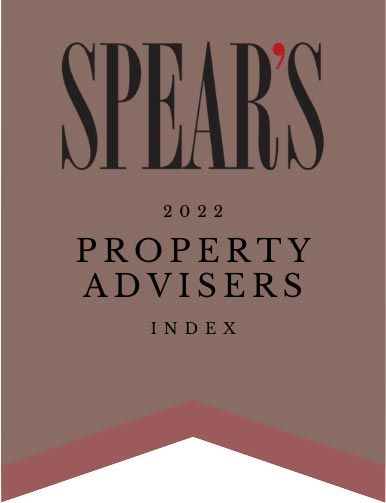2022 was a tumultuous year for the remortgage market. Geopolitical events with the invasion of Ukraine, rocketing energy prices and soaring inflation resulted in the economy having a wobble at the beginning of the year. By the end of 2022, the disastrous mini Budget saw the Bank of England suddenly hike up the bank base rate and mortgage rates went sky high as a result. It was a perfect storm of events which led to lending rates soar. A typical 2 year fixed rate loan went from 1.5% in January 2022 to a staggering 5.5% (approx.) in just 12 months.
Thankfully, the economy has stabilised and remortgage rates are looking much more attractive, which are positive signs, although it is forecast that the Bank of England could continue to increase the base rate throughout the year. This may make some mortgage products more expensive later in 2023. So, for homeowners looking to remortgage, early 2023 could be the perfect time to review finances and consider moving to a different mortgage product. By doing so, you could reduce your monthly mortgage repayments and potentially secure yourself a cheaper mortgage product.
In this blog, we answer some of the crucial questions that you may have about remortgaging and how to get the best deal suited to your needs and circumstances.
Remortgaging explained

Why do people remortgage?
Remortgaging to save money
We recommend examining your current mortgage or mortgages regularly. There are certain mortgage pitfalls that are easy to slip into that may mean you are paying more than you need to. Reviewing the market regularly to see if there are mortgage products with better rates, suited to your needs and requirements which could reduce the cost of your mortgage.
You are coming to the end of your fixed term
When your current mortgage deal ends, you will automatically be transferred onto your lender’s Standard Variable Rate (SVR). Generally, this is higher than the previous fixed or discounted rate. If automatically transferred onto an SVR, you could see your monthly mortgage payments vastly increase (although they may also go down). This is when a lot of borrowers look to remortgage to find a better deal.
Timing is critical here, as you will need to get a new deal in place before you begin to pay a potentially higher SVR. By searching elsewhere for a better rate, you could make considerable monthly savings. The best mortgage rates are generally introductory deals for new customers, so researching the whole market could prove beneficial. Your current lender could also offer a rate you can switch to which are exclusive to existing customers, although an introductory rate elsewhere may still beat this.
You want a better rate
It may also be possible to remortgage if you simply want a better rate, even if you have not yet come to the end of the fixed term of your mortgage. However, you may incur early repayment charges. It is essential to check the terms of your mortgage before you make any decisions. See below for more information on these possible costs.
If you arrange your remortgage through an independent mortgage broker, they can help you to weigh up the potential savings against your current mortgage rate, considering any charges. Ultimately, they can help to evaluate if remortgaging is the right financial decision for you.
Interest rates are rising
Interest rates here refers to the Bank of England base rate. Many lenders peg their own rates against the base rate, so any rise will result in higher mortgage interest rates. If there is speculation of a rate rise, many borrowers will choose to reassess their financial situation, and remortgage before a rate rise.
By acting before another possible base rate rise, individuals may have the chance to switch deals and fix at a comparatively lower rate for a set number of years.
You may have to pay an early repayment charge to your existing lender if you re-mortgage.
Remortgaging to release equity and raise capital
A remortgage can be an option for some borrowers who wish to free up some of the equity in their property and release funds for a variety of reasons.
To carry out home improvements

With the somewhat restricted housing supply in the UK, many home-owners are choosing home improvements over buying a new property. Remortgaging can provide you with the funds to carry out such works.
To buy a second property
For those who have found a new property they wish to purchase, remortgaging can provide the funds to do so, provided that you have sufficient equity in your current home.
You can read, here, how we secured a bespoke lending solution for a client raising funds by remortgaging, to purchase a further investment property.
To clear debt
If you have debt which you wish clear, you may be able to consolidate it into a remortgage. This may seem like a quick fix, but you should proceed with caution. The cost of remortgaging may outweigh the cost of repaying your debts outright.
Seeking professional advice in these circumstances is highly advisable.
What type of property can I remortgage?
Remortgaging is not restricted to Residential properties. Lenders are also open to applications for remortgages on Commercial and Buy to Let properties. In fact, portfolio and professional property owners are increasingly remortgaging their Buy to Let properties, to raise capital for further property purchases with high rental yields1.
Think carefully before securing other debts against your home or property. Your home or property may be repossessed if you do not keep up repayments on your mortgage.
The Financial Conduct Authority does not regulate some aspects of commercial and buy-to-let mortgages.
What fees do you pay when remortgaging?
Administration fees
Whilst remortgaging may seem like an effortless way to save money on your repayments; you must keep in mind that there will be fees payable to the lender when ending your existing mortgage and applying for a new one. These fees can apply regardless of whether you change lender or stay with your current lender. Other fees to consider can include:
- legal fees
- valuation fees
- mortgage broker fees
Therefore, you should be sure to calculate whether the administration fees outweigh the potential savings you could be making on your repayments.
Early Repayment Charges (ERC)
An ERC is a payment that you will have to make to your lender if you pull out of the fixed mortgage deal before your term is up. Your ERC is generally a set percentage of the remaining mortgage amount. Not all mortgage deals come with an ERC, so be sure to check with your lender if this is the case. If your mortgage does have an ERC, then it may be worth waiting until your term is up to consider remortgaging.
When you remortgage will the property have to be valued?
The short answer is yes. The lender will designate a surveyor who will visit the property and do a valuation before the application can be accepted. You will need a fresh valuation of your property whether you decide to remortgage with your existing lender or with a new one.
If the property has been enhanced since you first mortgages it, this may well work in your favour as a higher valuation will reduce the Loan to Value (LTV) of the mortgage and may make you eligible for better rates from the lender.
What type of mortgage products can I switch to?
Mortgage products can either be repaid on an interest-only and capital repayment basis.
Interest-only
Each month you only repay the interest on the mortgage and repay the lump sum at the end of your term. Because of this, the lender will require you to evidence a suitable repayment strategy to repay the loan amount, when the mortgage term has ended.
This can be a potential option for borrowers who want to keep their monthly repayments low. However, this is only available to those who have the funds or a repayment vehicle, which lenders will request confirmation of, to repay the whole mortgage at the end of the term.
Capital Repayment
This is the more basic of mortgage products, whereby you repay a small part of your mortgage each month, along with the interest repayments. This means that at the end of your term, you will have repaid your whole mortgage and own your property outright.
The interest rate you will pay will depend on the mortgage product type you chose. The four main types are:
- Fixed rate – With this product, you can choose a rate which is a set number of years, usually two, three or five years. This can offer borrowers some financial certainty, as you will know exactly how much you will be repaying each month, no matter what happens to interest rates elsewhere. However, you will not benefit if interest rates decrease, and you will be automatically put on your lender’s SVR at the end of your fixed term.
- Tracker – The interest rate for this product is often added onto the Bank of England base rate, and so fluctuates along as the base rate changes. This may be an appropriate choice if you think rates are going to decrease. However, you should be able to ensure that you can pay more if the rate should rise instead.
- Variable rate – This is the same as the lender’s SVR, which borrowers switch onto after a fixed term. Unlike the tracker, it does not fluctuate solely according to the base rate. This means that your rate could go up or down unexpectedly.
- Discounted rate – This is a reduction on a lender’s SVR. This is a fixed product which varies according to the SVR, meaning you should be prepared for your rate to increase at the end of the initial mortgage period.
How do I remortgage?

How much can I afford?
The answer to this varies widely from individuals to individual. Lender’s affordability criteria can assess your income, assets, monthly rental income and property portfolio (if applying for a Buy to Let remortgage).
Use our mortgage calculator, to get an idea of how much you could pay each month, depending on the interest rate, loan amount and term of the mortgage.
Do I have to provide a deposit?
The equity that you have built up in your home, by repaying your current mortgage, can be used as a deposit. This means that your loan to value (LTV) will be lower than when your first took out a mortgage to buy the property.
The number of lenders willing to take a view on a remortgage application increases as the LTV decreases. Additionally, these lenders are generally willing to offer better rates and terms. This means that you should be able to secure a relatively cheaper mortgage after you have built up a significant amount of equity in your home.
If the value of your home has increased since you purchased it, then you may be eligible for even lower rates, as your LTV will further decrease.
Can I get a million plus remortgage?

The application can be more complicated for high-value remortgages, and therefore you can expect the process to take longer, particularly as strict affordability tests will need to be carried out by the lender.
When applying for a large remortgage, you may be able to utilise your assets. These can include personal pensions, stock portfolios or overseas stock, along with any unencumbered property, to improve the chances of your application being accepted and increase the amount you could borrow.
It is also important to remember that many lender’s criteria and rates are much more movable for mortgages over £1 million, meaning that you should regularly review your mortgage and your circumstances. You could quickly reduce your monthly repayments by switching to a new, lower mortgage rate.
You can read here how we secured a bespoke £7.32 million Buy to Let Portfolio remortgage.
How long does it take for remortgage funds to be released by the lender?
This varies widely between applications. If it is a straightforward remortgage case, then it could take as little as 1-2 months for the mortgage to complete. If your circumstances and requirements are more complex, however, it may take longer. This is because the bank may have to consider your application on an individual basis, with a more detailed underwriting process required.
If you are going through a mortgage broker, they will liaise with lenders on your behalf, whether it be your current or new lender or both. This can save you a lot of time, and potentially speed up the application process.
Remortgaging when your circumstances have changed
Can I get a remortgage if I now earn my income in a foreign currency?
You may have taken out your original mortgage when both your income and mortgage repayments were in Pound Sterling but are now earning in a foreign currency and wish to remortgage.
Many lenders offer foreign currency mortgages, where the mortgage is serviced in a different currency to the applicant’s income. Income in this instance includes any assets used to repay the mortgage, which is received in a different currency to the loan. This could consist of salary, bonuses, and/or shares2.
You can read more on foreign currency lending here; we discuss why now could be a good time to make such an investment. It is advisable to seek independent mortgage adviser if you are thinking of applying for a remortgage in a foreign currency, as the application process can be complex.
Changes in the exchange rate may increase the sterling equivalent of your debt.
Can I remortgage if I live abroad?
If you are a UK national living abroad, most high street lenders will want to know if you are a UK resident. If you are not, they will be unlikely to consider your mortgage application. There are, however, a wide range of non-high street lenders with whom Large Mortgage Loans have strong relationships which have an appetite to provide mortgages to those in these circumstances.
Typically, they will require more documentation to cover the additional underwriting such as letters from your employer, bank statements from all bank accounts globally and an asset and liabilities statement.
Can I get a remortgage in later life?
With the changing demographics in the UK, later life lending is becoming more widely available. The profile of borrowers is changing with increasing life expectancy, and the mortgage market has adapted accordingly. For example, pensions and other assets may be now more widely accepted by lenders as repayment methods instead of income. Therefore, it is now very much possible to get a remortgage in later life.
You can read more about changing demographics in the UK and borrowing in retirement here.
Can I remortgage if I earn less than I did previously?
If your earnings have decreased since you initially arranged your mortgage, or since you last remortgaged, there may be a few options available to you, depending on your circumstances. Some private banks will take other assets you have such as share portfolios or cash into account when considering your case. In these situations it can be highly beneficial to seek professional advice from a brokerage with experience in arranging mortgages for those with complex income structures.
Can I get a remortgage if I am self-employed or a contract worker?
The age of borrowers is not the only thing altering in the UK mortgage market, the employment status of borrowers is also changing. As a result, new lenders are entering the sector, providing a higher number of mortgage products to choose from. For example, a lender has recently opened its doors to self-employed applicants with only one-year trading history or those who have only just started working as a contractor.3
The income assessment will be fundamentally different for self-employed and contract workers than those who earn a regular income. You may be asked to provide several years of accounts to demonstrate your income and whether it is sustainable enough to support the mortgage. Therefore, it is advisable to seek specialist mortgage advice, as a broker can talk you through the application process step by step. You should begin to prepare your paperwork and finances in advance of your application, to speed up the process.
You can read more about the specifics of how to get a remortgage as a contract worker here.
How do I find the right lender to remortgage with?
It is advisable to consult an independent mortgage broker if thinking about remortgaging. They have the expertise and experience to navigate the mortgage market to source you an appropriate lender for your circumstances and requirements, however complex they may be.
Along with a wealth of expertise, a mortgage broker has relationships with and access to private banks and niche lenders, who generally assess applications on a case by case basis with a more flexible underwriting approach. If your circumstances are complicated, or you are looking for a large remortgage, private banks and niche lenders may be more willing than high street banks to take a view on your application.
As well as helping to source the ideal lender, your mortgage broker can go through all of the relevant paperwork with you. They will take a holistic view on your finances and present your case to the lender, negotiating rates and terms on your behalf to provide a bespoke remortgage solution.
Your home may be repossessed if you do not keep up repayments on your mortgage.




















